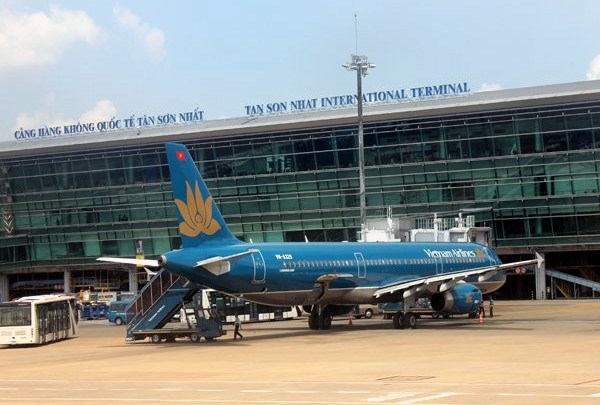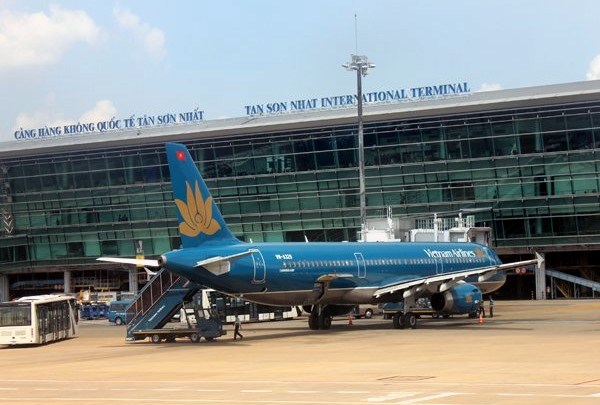



The Ministry of Transport plans to spend 350.5 trillion VND (15.4
billion USD) to develop the country’s aviation industry from now until 2030
(Photo: baodautu.vn)
The move is aimed at creating a foothold among the top four
leading nations in air traffic in ASEAN.
The proposal is part of the ministry’s revised draft on aviation transportation
development, which was recently sent to the Government for approval.
Of the total sum, 84.4 trillion VND will be invested until 2020.
Under the revised plan, the aviation industry will exploit 23 airports with 144
million passengers annually by 2020 and 28 airports with 308 million passengers
by 2030.
Deputy Minister of Transport Nguyen Van Cong said the draft was updated on the
basis of the scientific objections raised by the Science and Aviation
Technology Association and Aircraft Design and Consultancy Company Ltd at the
request of Deputy Prime Minister Trinh Dinh Dung.
"A revision in the plan is needed, creating a legal framework to continuously
develop aviation transportation in future and ensuring sustainability and
safety,” said Dung.
The current plan was approved by the Prime Minister in 2009. After many years
of implementation, the scale of aviation market has progressed, but it still
ranks the fifth in ASEAN. It has not yet attracted giant airlines to open
direct routes to Vietnam, and its infrastructure in a number of airports fail
to meet the increasing demand, resulting in overcrowding.
Under the draft plan, Vietnam’s aviation market is expected to be among the top
four leading nations in ASEAN in terms of the output of transportation by 2030
in association with the upgrading of Noi Bai, Tan Son Nhat and Da Nang
international airports and the opening of three logistic centres in Van Don,
Chu Lai and Long Thanh.
The ministry predicts that the transport of passengers via domestic airlines
will increase at an average rate of 16 percent annually from now until 2020 and
by eight percent during 2020-30. Meanwhile, the transport of goods is expected
to grow at an annual rate of 18 percent from now until 2020 and at 12 percent
annually during 2020-30.
The domestic airlines are expected to reach a volume of 64 million passengers
every year by 2020 and 131 million annually by 2030, according to the draft.
This growth rate is two to four percent higher than the current plan and is
also higher than the average growth of the global aviation industry.
Many experts believe that the ministry’s prediction is unreasonable, as the
International Civil Aviation Organisation, Boeing and Airbus estimate the air
traffic growth at a rate of some 1.6 times the country’s gross domestic product
growth.
In this regard, Deputy Director of Civil Aviation Authority of Vietnam, Vo Huy
Cuong, said that "in the period from 2010-17, this coefficient ranged from 1.5
to four times in Vietnam, mostly between two and 2.5 times, so the ministry’s
forecast is appropriate.”
In terms of aircraft fleet development, the draft plan estimates the number of
aircraft to grow by more than 220 units by 2020 and 400 units by 2030,
increasing by 70-100 units compared to the current plan.
There are currently four licensed airlines -- Vietnam Airlines, Jetstar Pacific
Airlines, Vietjet and Vietnam Air Services Company. To open opportunities for
new investors to enter the aviation market, there’s a need to increase the
capacity of airports and expand the scale of aircraft fleet in the next three
years.
According to Decree 118/2015/NĐ-CP issued by the Government in 2015 on detailed
regulations and guiding the implementation of a number of articles on the Law
on Investment, one of the requirements to receive investment certification is
that the project must be suitable with the aviation industry’s development
planning.
That is why many airlines such as Vietstar Air and Bamboo Airlines, have failed
to get licences although they have met the demand on capital and flying
capacity.
In April last year, the Government announced it would not consider approval of
Vietstar Air’s investment plan on aviation transport project and grant it
business licence unless the firm completes building additional terminals and
airfield in accordance with the planning on Tan Son Nhat International Airport,
which has been approved by the Prime Minister.
Deputy PM Dung said to raise investment and business results and help
enterprises develop in a healthy and sustainable manner, the approval for
investment and granting of business licences in the field of aviation must be
carefully considered and should be in accordance with the law to ensure
aviation safety and security in every facet.
General Director of Vietstar Air Pham Trinh Phuong
told baodautu.vn that if the draft plan was approved by the
Government, his firm would consider airport adjusting to seek the opportunity
to operate sooner.
Source: VNA